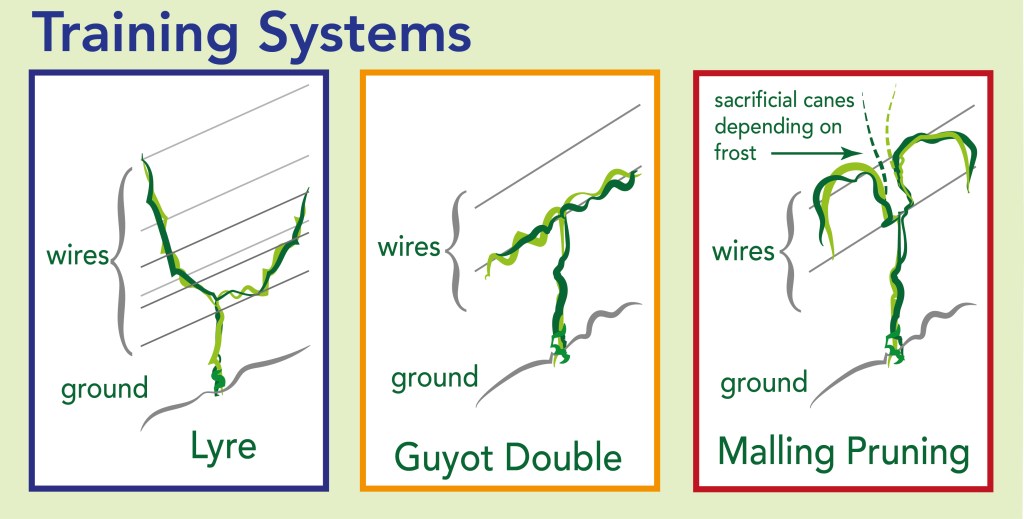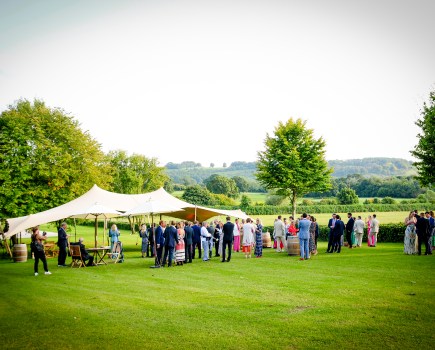NIAB’s Scott Raffle and Mark Else outline how the industry is embracing the scientific expertise at East Malling to develop both improved production techniques and wine quality.
The rapid expansion of vine growing in the UK over the past decade reflects the burgeoning English apple and pear industry over a century ago. Indeed, it was the growth of fruit production in Kent and the south east that led to the founding of East Malling Research Station in 1913, an establishment that developed into the world renowned centre of excellence that we know today under the NIAB name.
Much of NIAB’s success at East Malling has been built on the employment of scientists from a wide range of disciplines who have become experts in their field. Together, they have engaged directly with fruit growers to research and develop solutions to their problems and help to increase yields and fruit quality, allowing local growers to remain profitable and compete on the world stage. NIAB’s famous series of apple rootstocks at East Malling, its pioneering work on apple storage technology and development of modern high-yielding strawberry varieties, has been achieved by multi-disciplinary teams collaborating closely with the industry.
Fast forward to 2022 and NIAB finds itself engaging with a new viticulture industry, drawing on a team of experts who can help to research the production of grapes in our UK climate, and influence the quality of wines made from these grapes.
With climate change apparently occurring at a swift pace, an increasing number of fruit growers have spotted the opportunity of growing high quality grapes for wine production in southern England. Alongside this new opportunity however, climate change brings major challenges, including more variability in terms of temperatures, light, rain and more extreme weather events such as hail, late frost, heatwaves, rainfall and drought. These variables do not necessarily have a negative impact on wine quality, but always influence plant physiology and therefore the wine produced (vintages, sugar/acid, varieties). As a result, some leading vine producers have sought the help of NIAB’s expert scientists at East Malling.
This led to the first planting and establishment of a research and development vineyard at East Malling in 2015. The vineyard has been set up both for research purposes and to demonstrate best practice in vine growing, and it has been designed to reflect NIAB’s successful WET (Water Efficient Technologies) Centre which was established to demonstrate science in practice for the soft fruit industry. Above all, it is a unique, randomised, replicated facility, enabling robust R&D investigations.
The aim of the applied research is to improve berry yields and juice quality, whilst using resources responsibly and sustainably in ways that can be implemented in the UK’s cool-climate commercial vineyards. To this end, the vineyard has been planted and laid out in a way that ensures that our research is directly applicable to commercial practice and provides an essential facility to test upstream innovative practices or novel ideas of research in viticulture.
The demonstration work and research programme is guided by the industry funders, currently comprising four major wine producers – Chapel Down, Gusbourne, MDCV and Nyetimber – along with irrigation specialists Netafim UK Ltd. Three new associate members bring additional support including Yara UK Ltd (Bespoke fertigation programmes to newly-planted and established vines), Hutchinsons (agronomy support) and Hampton Steel Ltd (canopy support and training systems).
Early plantings have demonstrated the performance of a range of varieties on different rootstocks and using different training systems (Lyre, Guyot Double and a Malling system). The scientists have also been able to stage machinery demonstrations including methods of mechanical weed control and this has been employed in a European funded research project (IWMPRAISE) to compare the efficacy of mechanical weed control with conventional herbicide treatments. Both of the mechanical weeding methods assessed were as effective as herbicide treatments in terms of vine vigour and yield and did not result in losses in yield or quality. Interestingly, the control vines (no weed control) were chlorotic, nutrient deficient and produced only one third of the yield recorded for the weeded vines.
NIAB’s soil scientists are increasingly aware that poor soil health can give rise to inconsistent yields and juice quality in vine growing, which can lead to costly interventions in the vineyard and winery. Working with Chapel Down and Gusbourne and an industry consortium, earlier this year NIAB successfully secured grant funding from DEFRA’s Farming Innovation Programme (FIP) to investigate the potential impact of groundcover management practices on soil health, yields, juice quality and emissions. It will also lead to grower guidance on bespoke cover crop mixes to alleviate soil compaction, improve soil nutrition and control nematodes. Guidelines to support transition towards net-zero carbon emissions will be drawn up alongside this.
In 2022, NIAB has also established an additional research vineyard as part of its ‘trial services for horticultural crops’. Consisting of Pinot Noir and Chardonnay in 24 rows (60 vines per row), it offers the opportunity to undertake agrochemical trials, which require ‘crop destruction’ where new and emerging chemistry is being assessed. With no grapes being harvested for sale or for juice, it is thought to be the only vineyard of its kind in the UK. During its establishment, a root treatment trial was also instigated in this vineyard.
With so much science being channelled into grape growing, the funders of the research vineyard at NIAB recognised the importance of linking production to wine quality and with this in mind, a small research winery was created at East Malling in 2018. This allows NIAB to directly assess the impact of the research and different growing practices on the final wine product. The wines produced are regularly tasted and assessed by the funding consortium which is chaired by Geoff Taylor, who has 35 years of experience both working in the wine industry and employed in food and drink research.
Having outgrown the small winery, the consortium and NIAB have benefited from recent capital investment from the East Malling Trust, Kent County Council and ‘Growing Kent & Medway’, a research, innovation and enterprise cluster which is supported by UKRI’s ‘Strength in Places Fund’. As part of a complex of new research facilities at East Malling, a new Wine Innovation Centre (WIC) has been built. Covering an area of 260m2, it includes a fermentation area, temperature-controlled cellar, pressing area and analytical laboratory. With this new infrastructure in place, the final piece in NIAB’s viticulture research programme is to secure a world-leading oenologist to work with the UK viticulture industry and steer our research to meet the needs of our wine producers.
NIAB is pleased to announce the appointment of Dr Belinda Kemp to this new role. Belinda brings eighteen years of experience working in the wine industry in England, New Zealand and most recently heading up oenology research at the Cool Climate Oenology and Viticulture Institute (CCOVI) in Ontario, Canada. She is also an Adjunct Professor in the Department of Biological Science, Faculty of Maths and Science at Brock University. Her role has been split evenly between scientific research and industry outreach, working with the Ontario wineries and vineyards. She was educated in viticulture and oenology at Plumpton College in West Sussex and undertook a Ph.D. at Lincoln University in New Zealand, where she studied the effect of the timing of leaf removal on Pinot Noir berry ripening, flavour and aroma. Belinda will be taking on her new role for NIAB at East Malling in April 2023, but she will be joining her new colleagues at the NIAB stand at this year’s Vineyard & Winery Show and looks forward to developing new relations with our UK industry.
- Dr Belinda Kemp







